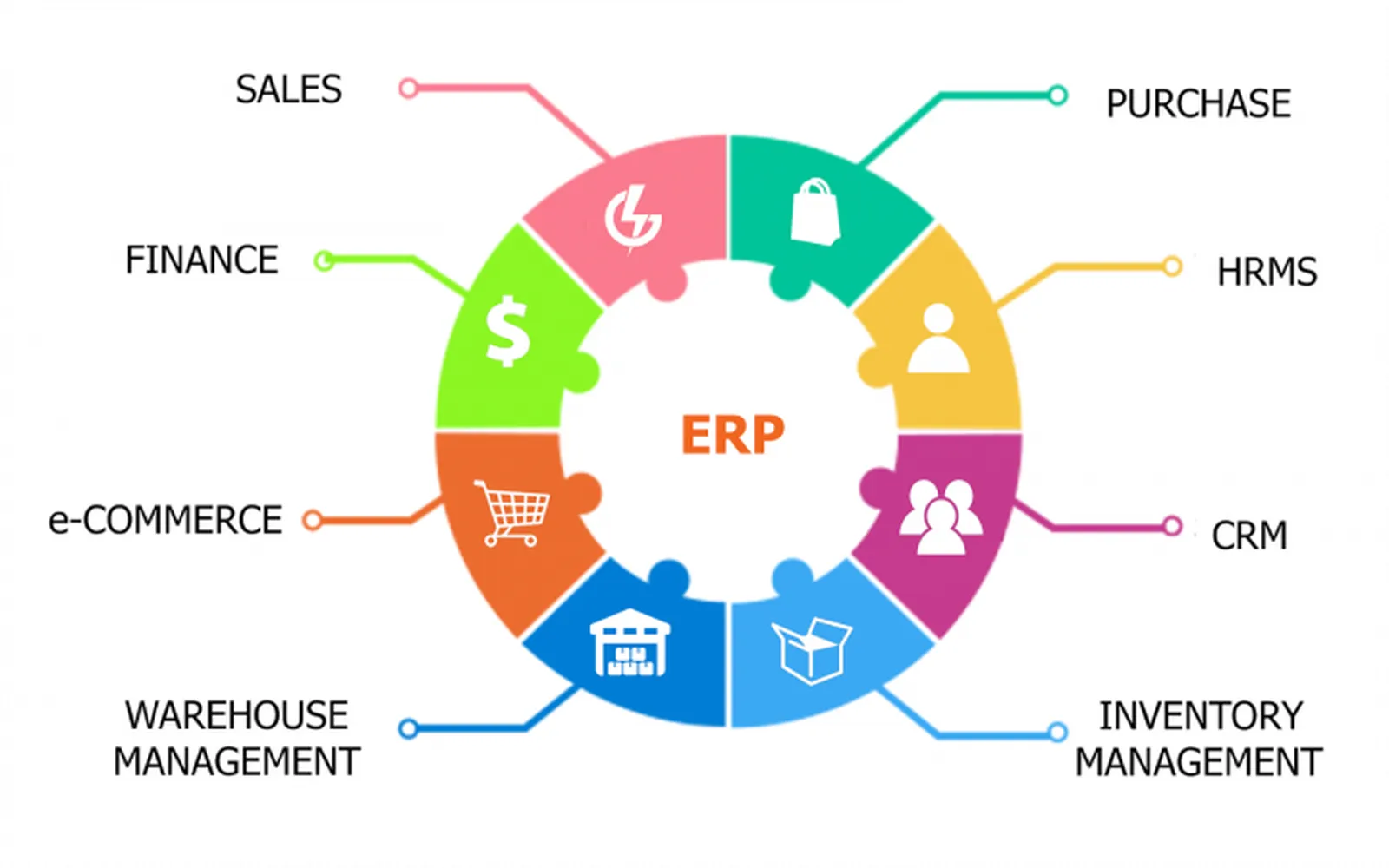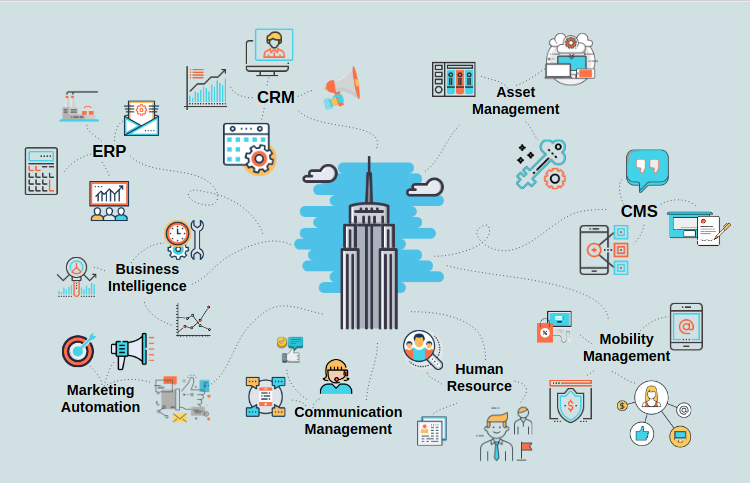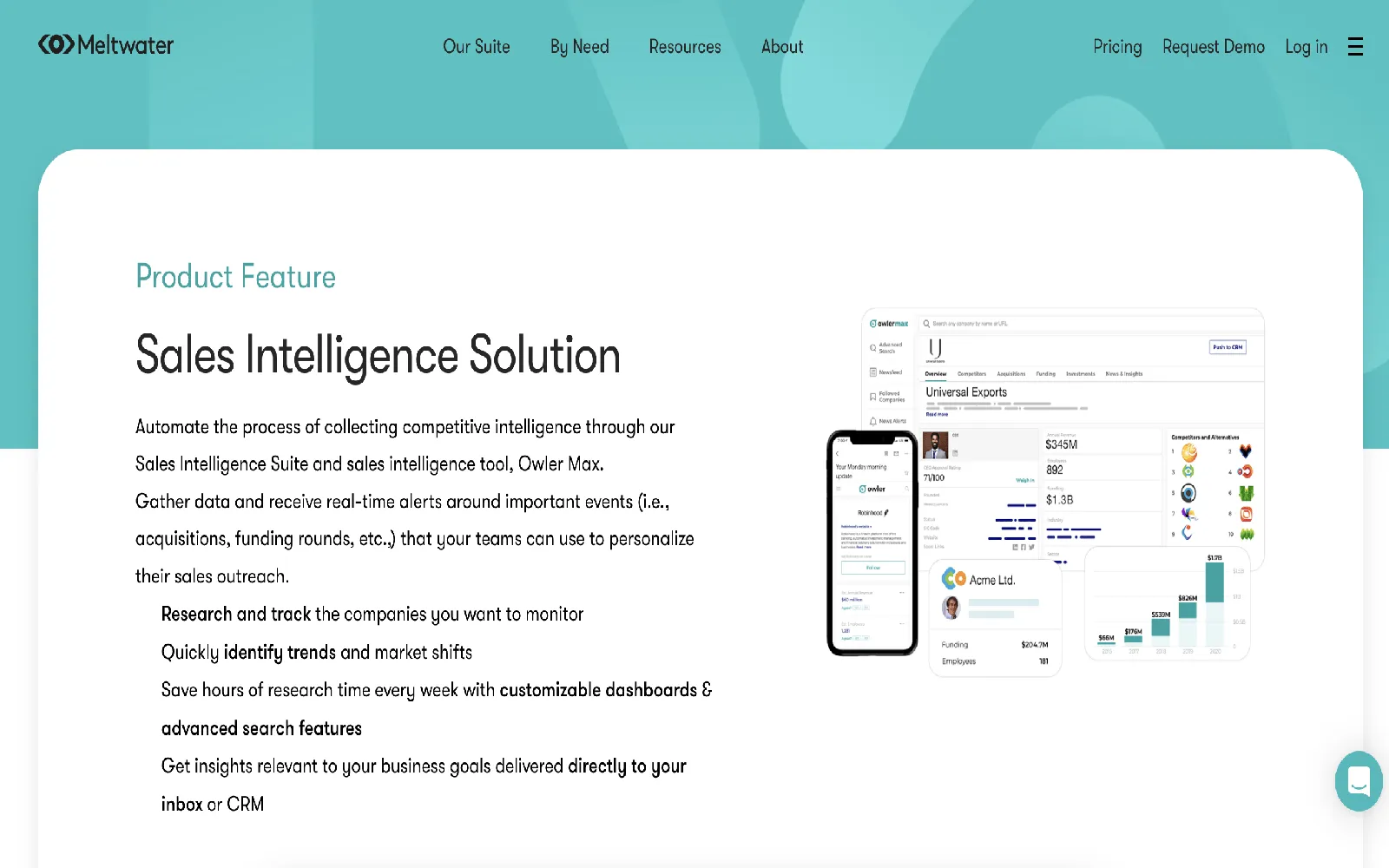Best ERP Solutions for Businesses in 2025
In today's fast-paced business environment, Enterprise Resource Planning (ERP) solutions are critical for streamlining operations, improving efficiency, and boosting overall productivity. ERP systems integrate various business processes, including finance, supply chain, human resources, and customer management, into a unified platform. By implementing an ERP solution, organizations can gain real-time visibility into their operations, making informed decisions and improving their bottom line. As technology continues to evolve, so do ERP systems, with many options available in the market. This article highlights some of the best ERP solutions in 2025, tailored to different business needs.
1. SAP S/4HANA
Overview: SAP S/4HANA is one of the most comprehensive ERP systems available, designed for large enterprises and industry-specific solutions. Built on an in-memory database, it offers real-time analytics and seamless integration with other SAP products, making it highly scalable and suitable for complex operations.
Key Features:
- Real-time data processing and analytics
- Industry-specific modules
- Integration with SAP Fiori for a user-friendly interface
- High scalability for global enterprises
Ideal For: Large enterprises in industries such as manufacturing, healthcare, finance, and retail.
| Feature | Details |
|---|---|
| Database | In-memory (HANA) |
| Deployment | On-premise, cloud, hybrid |
| Industry Fit | Manufacturing, Healthcare, Retail |
| Price | High |
2. Oracle NetSuite
Overview: NetSuite, a product of Oracle, is a cloud-based ERP solution that caters to businesses of all sizes. Its modular design allows organizations to choose the features they need and scale as they grow. NetSuite offers integrated business management capabilities, including financials, customer relationship management (CRM), inventory management, and e-commerce.
Key Features:
- Cloud-based, accessible from anywhere
- Multi-currency and multi-language support
- Strong financial management and reporting tools
- Excellent for companies with global operations
Ideal For: Small to medium-sized businesses (SMBs) and enterprises with international operations.
| Feature | Details |
|---|---|
| Deployment | Cloud |
| Financial Management | Advanced features with global compliance |
| Customization | High flexibility |
| Price | Moderate to High |
3. Microsoft Dynamics 365
Overview: Microsoft Dynamics 365 is a robust ERP solution that combines CRM and ERP capabilities in one platform. With deep integration into the Microsoft ecosystem (including Office 365, Azure, and Power BI), it provides a comprehensive suite of tools for finance, operations, sales, and customer service.
Key Features:
- Integration with Microsoft tools like Power BI and Office 365
- Artificial intelligence (AI) and machine learning (ML) for predictive analytics
- Customizable modules for various business needs
- Real-time visibility into business operations
Ideal For: Companies already utilizing Microsoft products, mid-sized to large enterprises.
| Feature | Details |
|---|---|
| Deployment | Cloud, on-premise, hybrid |
| Integration | Office 365, Azure, Power BI |
| AI and ML | Predictive analytics for business intelligence |
| Price | Moderate |
4. Infor CloudSuite
Overview: Infor CloudSuite is a comprehensive cloud-based ERP solution tailored to specific industries, including manufacturing, healthcare, and distribution. It leverages AI-powered analytics to provide deep insights into business processes, enabling organizations to optimize operations. The system is scalable and flexible, making it suitable for businesses of all sizes.
Key Features:
- Industry-specific functionalities
- AI-driven analytics
- User-friendly interface
- Strong supply chain and financial management capabilities
Ideal For: Manufacturing, healthcare, and distribution companies looking for an industry-specific solution.
| Feature | Details |
|---|---|
| Deployment | Cloud |
| AI Integration | Analytics and business insights |
| Industry Specialization | Manufacturing, healthcare, distribution |
| Price | Moderate |
5. Odoo
Overview: Odoo is an open-source ERP solution offering a wide range of applications for different business functions, such as accounting, CRM, project management, and inventory. Odoo's modular approach allows businesses to customize the system according to their needs and only pay for the features they use. It is an excellent option for small to mid-sized companies looking for flexibility and affordability.
Key Features:
- Open-source and highly customizable
- Modular design for scalability
- Affordable with various pricing options
- Strong support community
Ideal For: Small to mid-sized businesses (SMBs) looking for cost-effective and customizable ERP solutions.
| Feature | Details |
|---|---|
| Deployment | Cloud, on-premise |
| Customization | High, with open-source flexibility |
| Community Support | Strong open-source community |
| Price | Low to Moderate |
6. Acumatica
Overview: Acumatica is a cloud-based ERP solution known for its ease of use and scalability. It is designed to grow with businesses and offers functionality for financial management, project accounting, CRM, and distribution. Acumatica’s pricing is based on resource usage rather than user count, making it ideal for growing businesses with fluctuating workforce needs.
Key Features:
- Cloud-based with high scalability
- Pricing based on resource usage, not users
- Easy integration with third-party applications
- Excellent for companies with dynamic resource needs
Ideal For: Growing businesses with fluctuating user bases, especially in the distribution and service industries.
| Feature | Details |
|---|---|
| Deployment | Cloud |
| Pricing Model | Resource-based |
| User Scalability | High, ideal for dynamic businesses |
| Price | Moderate |
Conclusion
Choosing the right ERP solution depends on several factors, including the size of your business, industry needs, and growth objectives. While SAP S/4HANA and Microsoft Dynamics 365 are excellent choices for large enterprises, Oracle NetSuite and Infor CloudSuite offer flexibility for SMBs and mid-market companies. Odoo and Acumatica, on the other hand, provide affordable and scalable options for growing businesses.
Each ERP solution has its own strengths, and businesses must evaluate their requirements carefully before selecting a system. The right ERP can transform an organization's efficiency, enhance decision-making, and lead to significant cost savings in the long run.
Explore

ERP for Small Businesses: Streamlining Operations and Boosting Efficiency

Best Enterprise Software Solutions of 2025

Best Sales Software for Small Businesses in 2025

The Importance of Hiring the Best Criminal Defense Attorney

The Best Internet Business Phone Systems: A Comprehensive Guide

Top MBA Distance Education Programs: An In-Depth Guide

The Power of Press Release Services: A Vital Tool for Business Growth

Top Network Security and Monitoring Software
